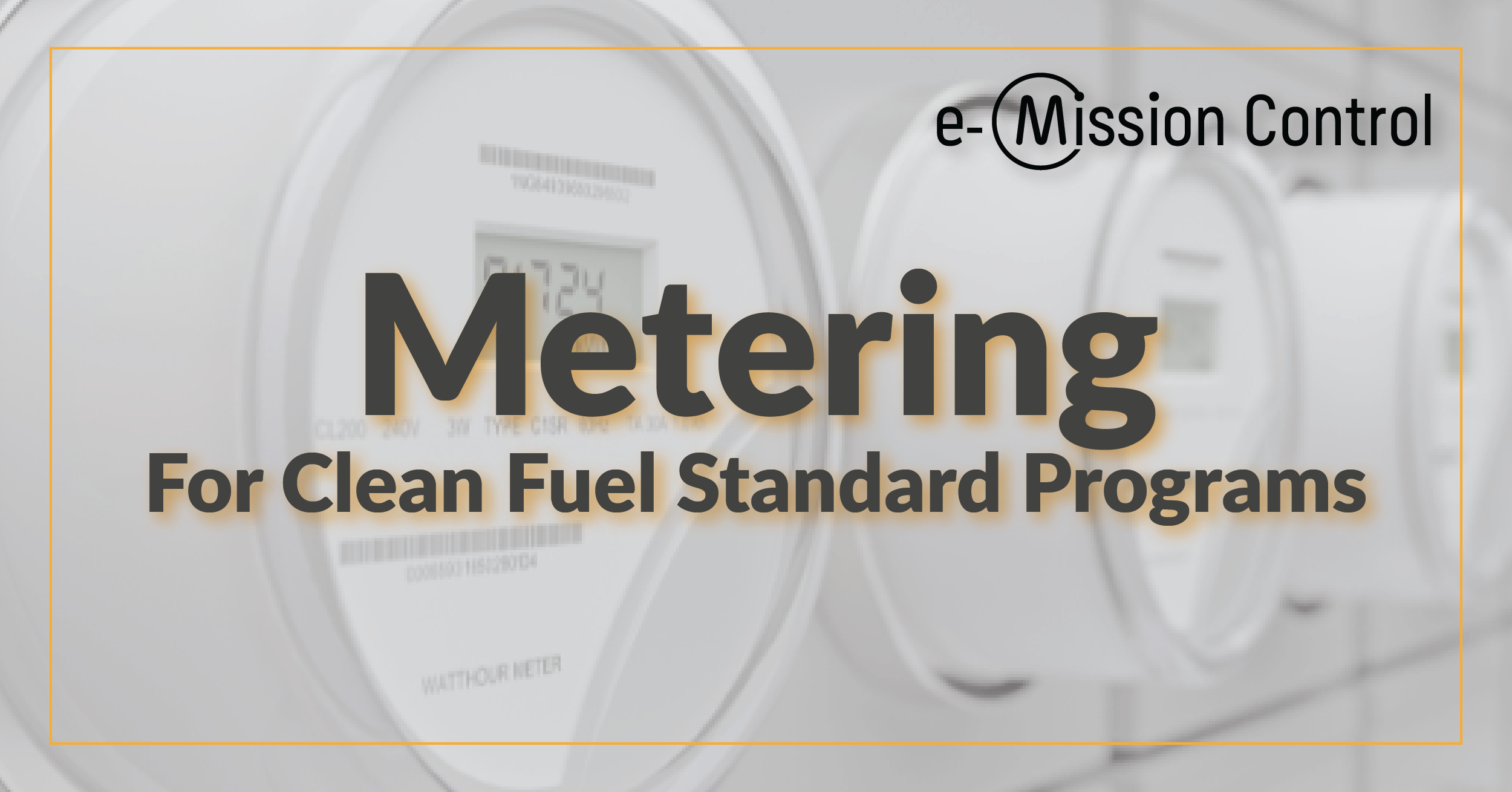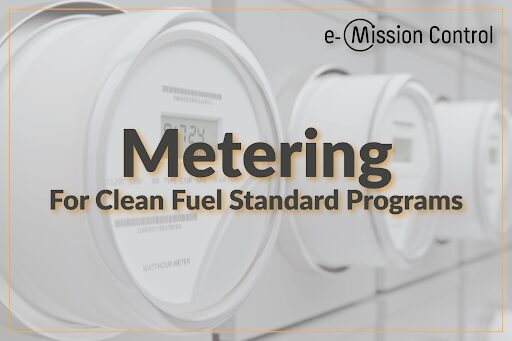

Clean fuel standard program metering is crucial for generating accurate data, specifically for electric material handling equipment, such as forklifts. The increasing shift from estimation methodologies to metering for forklifts and other off-road equipment is an important step towards achieving high-quality data. This blog explores the reasons behind the requirement for clean fuel standard program metering, the types of equipment that will be affected and e-Mission Control’s metering solution.
A calculated methodology is a process of determining kWh consumption and resulting credits from an agency-defined formula rather than from metered data. Clean fuel standard programs along the West Coast share similarities in rulemaking, including the use of a similar calculated methodology. In response to industrial environments where energy consumption data is hard to acquire, the California Air Resources Board’s (CARB) developed a draft regulatory guidance in 2017 for estimating forklift energy consumption. The Oregon Department of Environmental Quality has informally allowed for the use of the this same estimation since it’s drafting, now with some modifications as described below, and the Washington Department of Ecology adopted the CARB method, with some additional caveats.
The CARB calculated methodology combines forklift battery capacity rating, depth of discharge, charger efficiency rating and charge return factor to yield kWh per charge cycle. It then multiplies this information by the number of shifts per day and by the number of work days per quarter to determine kWh per charger per quarter, the data point required for reporting. Each variable is plugged into an equation to determine the quarterly total electricity use, which is the sum of the kWhs of all the chargers of the fleet.
As announced in 2023, states with active clean fuel standard programs including Oregon and Washington are changing their regulations and are sunsetting the calculated methodology for electric forklift credit generation. Only metered eMHE will be eligible to earn credits.
In June 2023, the Oregon Department of Environmental Quality (DEQ) issued a new mandate that would phase out the estimation methodology (kWh) usage calculated based on fleet and operational data by Q4 2023, and instead require direct metering moving forward. Reporting estimated energy consumption (kWh) for electric forklifts is allowed, but with reduced depth of discharge (30% instead of 80%) and shifts per day limited to two or fewer.
In May 2023, Washington’s Department of Ecology (ECY) also published guidance documents signaling the phase out of the estimation method for electric forklifts in favor of direct metering. Unlike the Oregon DEQ, however, the interim calculation allowed for kWh usage estimation exactly mirrors the California guidance document, with industry standard depth of discharge (80%) and no cap on shifts per day. The ECY requires that those registered for Q1 reporting in 2024 must be working towards installing meters, and caps the total number of allowable quarters using the estimated method to four.
As of mid-2023, the California Air Resources Board has not made any changes to the calculation laid out in LCFS Guidance 17-02 that prescribes how to estimate e-forklift energy consumption for crediting in the program. However, CARB will likely propose required metering for this equipment category in future rulemaking cycles.
Metering plays a pivotal role in ensuring the reliability and integrity of data collected for clean fuel standard program crediting. Metering results in high quality data that the Washington State Department of Ecology, the Oregon Department of Environmental Quality, and other government agencies overseeing clean fuel standard programs seek. Metering creates full transparency into precise and accurate data and eliminates potential discrepancies that could arise from estimation methodologies.
Most class 1-8 EVSE charging systems have cloud based technologies which are used for clean fuel standard program reporting. Off-road equipment such as forklifts, yard trucks, eTRUs (electric transport refrigeration units) and others without telematics require dedicated metering.
e-Mission Control (eMC) facilitates participation in clean fuel programs for owners and operators of zero-emission vehicles and equipment at retailers, grocers, manufacturers, distribution facilities, municipalities and others including many facilities with forklifts.
We are very familiar with the calculated methodology of credit generation for electric forklifts and also stand ready with a DEQ-approved and ECY-approved metering solution. eMC is the industry leader in electric vehicle and equipment sub-metering, which is increasingly important in earning and monetizing clean fuel program credits in Oregon and Washington State.
e-Mission Control’s sub-metering solution is a quick installation and has a small footprint. Our solution is adaptable, with step-down transformers adapting to any existing power source, and are compatible with any site.
To learn more about e-Mission Control’s metering solution for electric forklifts, download our info sheet.
As clean fuel standard program administrators strive for greater accuracy, transparency, and effectiveness, the shift from estimation methodologies to metering becomes crucial. By embracing this transition, stakeholders can contribute to a greener future by making informed decisions based on high-quality and transparent information.